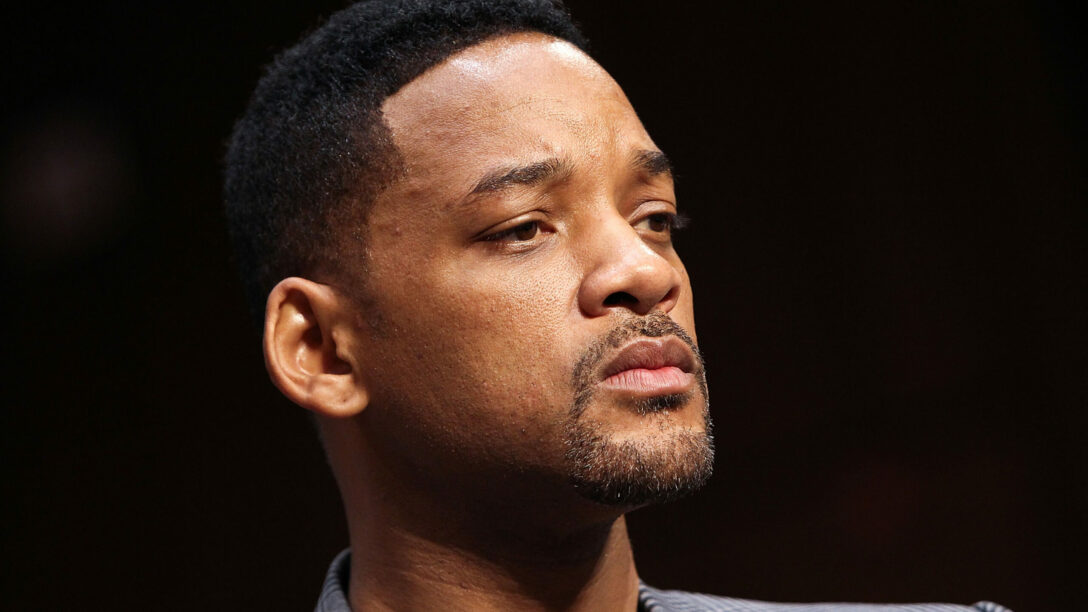Chris Rock’s joke about Jada Pinkett Smith’s lack of hair wasn’t a very good joke—dumb, lazy, and given that she has alopecia, cruel. Will Smith’s violent response to that joke—the slap, the “take my wife’s name out of your fucking mouth”—was far worse. And given some key biographical details of Smith’s own early experiences, it’s even more devastating.
Will Smith and Jada Pinkett Smith have been very open about the difficulties and ultimately the openness of their marriage. (Who knows what really goes on in their marriage, by the way—all marriages have their own unique codes, after all.) What surprised me most, though, is that harrowing physical violence loomed large in Smith’s childhood, and has self-admittedly lingered over his psyche.
In particular, he was tormented by the memories of his father beating his mother when he was a young child, and remains remorseful about his inability to protect her. “Within everything that I have done since then—the awards and accolades, the spotlights and attention, the characters and the laughs—there has been a subtle string of apologies to my mother for my inaction that day,” he wrote in his 2021 autobiography, Will. “For failing her in the moment. For failing to stand up to my father. For being a coward. What you have come to understand as ‘Will Smith’, the alien-annihilating MC, the bigger-than-life movie star, is largely a construction—a carefully crafted and honed character designed to protect myself. To hide myself from the world. To hide the coward.”
Smith even confesses in his memoir to fantasies of killing his father, especially later in life when the latter was confined to a wheelchair. “I paused at the top of the stairs. I could shove him down, and easily get away with it,” he writes in one poignant moment. “I’m Will Smith. No one would ever believe I killed my father on purpose. I’m one of the best actors in the world. My 911 call would be Academy Award level. As the decades of pain, anger, and resentment coursed then receded, I shook my head and proceeded to wheel Daddio to the bathroom.”
The tension that lingered after the slap, however, pertained to the expectation that Smith, the odds-on-favorite to win Best Actor for his portrayal of the overbearing father-cum-tennis-coach, Richard Williams, would likely be returning to the stage soon thereafter to accept his gold trophy. Counseled during commercial breaks by his publicist and other actors, Smith could have conceivably demonstrated a more elevated masculinity by admitting his mistake, apologizing profusely, and acknowledging a very publicly demonstrated weakness. Not only would this have been the most adroit maneuver from a, well, human perspective, but it probably would have been the shrewdest P.R. move, too.
Alas, Smith did not rise to my hopeful expectations. He defended his violence as a form of love and protection, claiming that he was protecting his co-stars Aunjanue Ellis, Saniyya Sidney, and Demi Singleton, all women, just like the character he portrayed. He claimed he was called to be a “vessel for love” and a “river for his people.” (Last I checked, the people get to pick their own rivers…) Smith then apologized to his fellow nominees and the academy, but notably not to the man he assaulted. Excusing violence in the name of love sounds a lot like the words of an abusive man absolving his actions to his spouse and children.
Most disappointing to me, Smith essentially claimed that his moment of violence was life imitating art. In the process, he marred the beautiful story he was blessed to help bring to life, detracted from the Williams family, and missed an opportunity to show men and boys how to break something and repair it, how to apologize. I wish he hadn’t struck Rock or angrily yelled profanities. But I wish even more that, when graced with a second chance on stage, he would have said something different.
What could he have said? Something like: “I apologize to my brother Chris Rock, who somehow managed to keep the show going after I hit him in the face. I apologize to my wife, to my family, to the Williams family, and to everyone who has worked so hard to be a part of this celebratory night. I resorted to violence in response to words, and that is not the way. It’s not what I want to be known for. It’s not what I believe I’m called to do in this world. To the little boys who look up to me, I apologize. Sometimes, even us trained professionals lose control of our emotions, and this night has been full of emotion. Chris’s joke hurt my wife, who many of you know suffers from a disease that impairs hair growth. I thought defending her meant hitting him, but I was wrong. As someone who portrayed Muhammed Ali, an advocate of peaceful protest, I know better. As a boy, I missed a chance to defend my mother from abuse. I’ve written about this and am clearly still dealing with it. Apparently I’m dealing with it in the worst possible way, at the worst possible time, right now at the Oscars. Now about this award…”
It could have been a transformative moment, but instead we got a rambling justification. We got a Black man assaulting another Black man. We got Smith pulling focus from historic award winners like Summer of Soul, CODA and other powerful creative work, and somehow managing to make us forget Beyoncé!
I acknowledge that it’s easy for me to weigh in on what Smith could and should have done, as I write this from home on a Monday morning. I don’t live under his immense public scrutiny. I don’t know that I could have recovered from such a lapse any better than he did. We saw him processing his emotions live, painfully and tearfully, and most of us will never experience a similar situation, with such high emotions combining in such a combustible and public moment. The best I can do, as an observer, is to consider as much of the picture as I can access, and to strive to find some meaning or lesson beyond the spectacle.
One such valuable moment amidst the chaos stands out to me: the sight of fellow men trying to calm Smith down. It reminded me of the short video that recently went viral of a six year old calming his four year old brother with his breathing. Respect to Denzel Washington, Tyler Perry, and Bradley Cooper, who modeled another version of love and protection. I only wish they had been able to get Smith to breathe before he left his chair the first time.
Many of us spend our lives coping with childhood traumas, not entirely conscious of how we’re overcompensating, often in ways that helped us at the time but no longer serve us as adults. I’m not Smith’s therapist. I’m not anyone’s therapist, but I see a connection between his Oscars moment and his own admission that his life is “a carefully crafted and honed character designed to protect myself. To hide myself from the world. To hide the coward.”
Will Smith basically chose a living in which he became other people to hide from the person inside. He constructed a version of himself that could contain the version he was ashamed of. Last night, while receiving the highest honor in his field, Smith’s ability to compartmentalize fell apart; he could no longer hide. That carefully constructed character collapsed.
Hopefully, he can repair what he broke. But what about the rest of us? What unprocessed emotions are each of us sitting on? What characters have we constructed to survive? Do we have the tools and the community to recognize them and integrate them constructively? I never expected an awards show to present me with an opportunity to ask these questions. I hope Will Smith is doing the same.

















